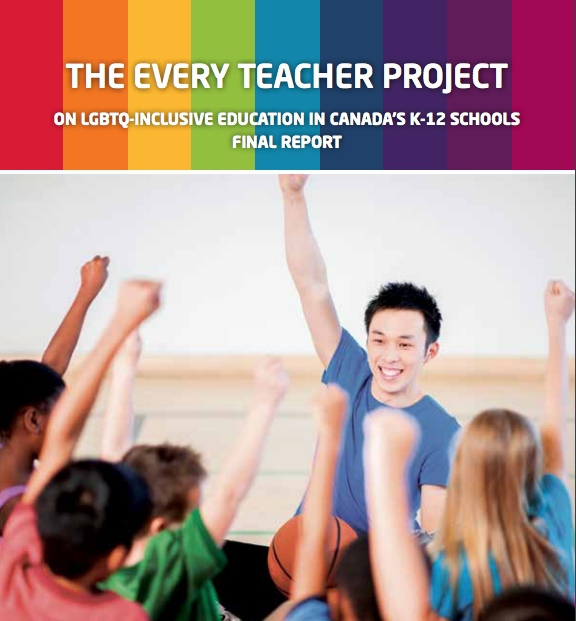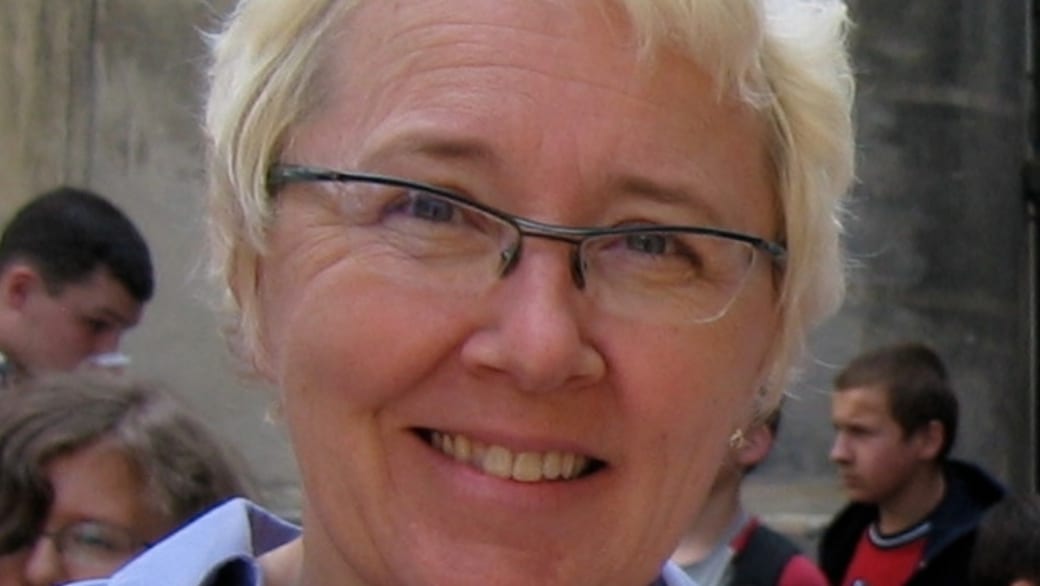A new study of teachers’ experiences in Canadian K-12 schools shows British Columbia continues to lag behind other provinces in LGBT-inclusive education, observers say.
This, despite findings that BC’s teachers generally support gay-friendly initiatives and say they’d be comfortable discussing LGBT issues with students.
The national study of 3,400 teachers, conducted in 2013 and released by University of Winnipeg researchers on Jan 15, 2016, makes 14 recommendations to provincial governments and school districts to develop clear, inclusive policy, provide classroom resources and support teachers using them.
The report also has two pages of recommendations for teachers and other school staff on how best to implement such policy, and a final page of recommendations for religious organizations. Chief among them: “Reconceptualize the common misconception of LGBTQ inclusion as a battle between religious faith and LGBTQ rights.”
James Chamberlain calls the recommendations “really strong.” He’s been pushing for change in BC since the late 1990s, when he challenged the Surrey school board’s refusal to let him read three gay-friendly children’s books to his kindergarten class.
Chamberlain is particularly keen on the report’s recommendation to develop mandatory curriculum content for all grades — and to give teachers the support they need to use it in their classrooms.
“That’s something that has not been made mandatory in BC,” he tells Daily Xtra.
The report urges provincial governments to pass clear legislation mandating policy adoption.
“A number of provinces (Alberta, Manitoba, Ontario) now have legislation requiring schools to provide GSAs [gay-straight alliances] when requested by students or teachers,” the report notes. “We recommend that all provinces and territories amend their education statutes to include requirements for LGBTQ-inclusive education, that go beyond GSAs and anti-harassment policies, in all publicly funded schools.”
“This is an endorsement of what we’ve been calling for in British Columbia for so long,” Ryan Clayton tells Daily Xtra. “We’re so far behind the rest of Canada.”
Now 28 years old, Clayton has been touring schools in BC since 2007, speaking with young people and leading anti-homophobia workshops from Revelstoke to Salmon Arm to Comox. Five years ago, he co-founded the Purple Letter campaign, urging British Columbians to send letters to BC’s premier and education minister to demand a province-wide policy on sexual orientation and gender identity for BC schools.
While 40 of BC’s 60 public school boards have now passed some form of anti-homophobia policy, there is still no province-wide plan mandating all schools address LGBT lives.
Nor are there clear implementation plans for some of the local policies passed, Chamberlain notes.
He’d like to see all districts pass LGBT-inclusion policies and clear plans to roll them out, in consultation with teachers and local LGBT community members.

(The Every Teacher Project, a national study of thousands of teachers across Canada, was conducted by researchers at the University of Winnipeg./news-centre.uwinnipeg.ca)
Study co-author Catherine Taylor tells Daily Xtra the absence of legislative support for LGBT-inclusive education inevitably translates into uneven efforts by school districts.
While some school districts across Canada have made extensive efforts on their own without legislative requirements, she says, others will do only what legislation requires them to do.
Some school district superintendents might resent legislative requirements, she adds, but they can also rely on the law to defend their LGBT-inclusive efforts.
“It is crucial that the hierarchy of authority in the school system be strong from legislation through to school district policy and individual school implementations,” she says.
“District superintendents need to know the ministry has their back. Principals need to know superintendents have their backs. Teachers need to know principals have their backs.”
Clayton looks at the number of policies and legislation passed across the country and shakes his head about BC. He says BC’s absence of legislation in this area can be laid at the feet of Premier Christy Clark and her cabinet.
“They take no interest at the provincial level,” he says. “They are out of step.”
BC “could do a whole lot more,” agrees Jillian Wedel (who also goes by Jay and uses the gender-neutral pronoun “they”).
Wedel has also spent a lot of time in BC public schools in the past five years, this time with the organization Out In Schools, showing queer films to students and facilitating discussions afterwards.
Wedel wishes BC would follow Alberta’s lead and introduce mandatory guidelines and timelines for LGBT-inclusive policies.
A top-down approach from provincial government could “light a fire” under school districts that have yet to implement policies, they say.
BC’s Ministry of Education says in a statement to Daily Xtra that it is reviewing the report.
The statement says the ministry is already working to support LGBT people in schools.
“Everybody is respected and welcomed in BC schools, regardless of their gender, race, culture, religion, sexual orientation, or gender identity,” it says.
“We support boards of education and independent school authorities that have implemented LGBTQ-specific policies,” the statement says, “and continue to encourage educators to engage students to better understand issues confronting LGBTQ youth and to have student-led clubs such as gender sexuality alliances.”
The ministry points to its ERASE Bullying Strategy and says it has met with safe school coordinators in each district and provided professional development on best to support LGBT students. “BC is a world leader when it comes to working to create safe schools where there’s a real climate of inclusion for all students,” the statement says.
As part of its ERASE Strategy, the ministry says it plans to train 15,000 educators and community partners over a five-year period to help them proactively identify and address bullying threats to a broad range of vulnerable students. It does not specifically mention queer students.
That’s a start, Wedel says, but “there’s not a lot of specificity in terms of LGBTQ.”
Taylor calls the ministry’s response “disappointing.”
“We know that generic policies are ineffective in protecting or including LGBTQ students,” she says.
“‘Everybody’ in practice all too often means ‘everybody but you’ where LGBTQ students and staff are concerned.”
She says she’s happy the ERASE program promotes inclusion but saddened “to hear inclusion defined so unambitiously as identifying bullying threats.”
“I hope that somewhere in that government response there is an implied understanding that proactively addressing safety issues means striving for fully inclusive school communities — yes, for all, but obviously specifically for LGBTQ students,” Taylor says.
Genuinely inclusive teaching is crucial to extending the dignity of ordinary, everyday life at school to LGBT students and staff, she says.
“It’s time to drop the unofficial ‘don’t say gay’ rule that still muzzles teachers and belittles the dignity LGBTQ students and staff,” she says.

 Why you can trust Xtra
Why you can trust Xtra


